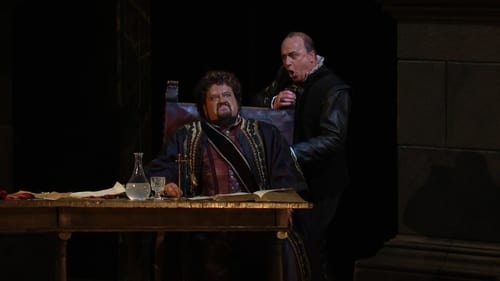
Conductor
Semyon Bychkov conducts a cast of young, up-and-coming talent including American soprano Corinne Winters in a new production of Mozart’s opera on the nature of love.

Conductor

Conductor
In Verdi’s retelling of Shakespeare’s towering tragedy, Renée Fleming gives a captivating performance as the innocent Desdemona, a role long considered one of her calling cards. Johan Botha as the title hero delivers an imposing portrayal of a proud warrior brought down by jealousy, and Falk Struckmann is thrilling as the villainous Iago. James Morris sings Lodovico. Elijah Moshinsky’s production is conducted by Semyon Bychkov.

The Bells, Op. 35 by Sergei Rachmaninov Conductor: Semyon Bychkov Orchestra/Ensemble: Cologne West German Radio Symphony Orchestra Period: Romantic Written: 1913; Russia 2. Symphonic Dances, Op. 45 by Sergei Rachmaninov Conductor: Semyon Bychkov Orchestra/Ensemble: Cologne West German Radio Symphony Orchestra Period: Romantic Written: 1940; USA 3. Symphony no 2 in E minor, Op. 27 by Sergei Rachmaninov Conductor: Semyon Bychkov Orchestra/Ensemble: Cologne West German Radio Symphony Orchestra Period: 20th Century Written: 1906-1907; Russia

Conductor
This 2004 production of Richard Strauss's three-act comic opera Der Rosenkavalier (1911) emerged from the efforts of the Grosses Festspielhaus Salzburg. It stars Adrianne Pieczonka as Feldmarschallin, Franz Hawlata as Baron Ochs, Angelika Kirchschlager as Octavian and Franz Grundheber as Faninal. The Konzertvereinigung Wiener Staatsopernchor and the Wiener Philharmoniker lend added musical support, with Rupert Huber serving as chorus master of the former and Semyon Bychkov conducting the latter.

Conductor
Semyon Bychkov
WDR Sinfonieorchester Köln SYMPHONY NO. 3 IN F MAJOR, OP. 90 SYMPHONY NO. 4 IN E MINOR, OP. 98 Far from being conservative, as Brahms often has been referred to, his symphonies show the composer as a groundbreaking pioneer far ahead of his time. He may not have broken dramatic new ground in the same way as his musical colleagues Liszt and Wagner, who invented new genres. Instead, his innovations took place at the mircro-level – within music’s inner palm. In this respect Brahms was far ahead of his time – and this fact explains what half a century later Arnold Schoenberg regards him as “progressive” and was referring to him for his own compositional theory.




